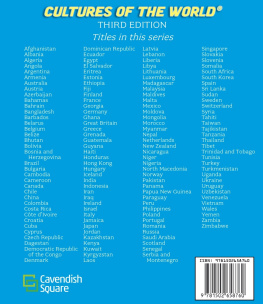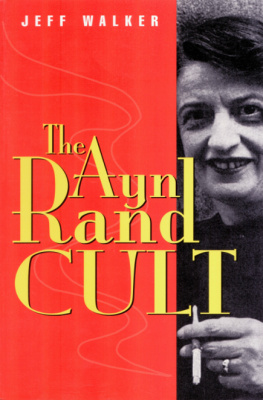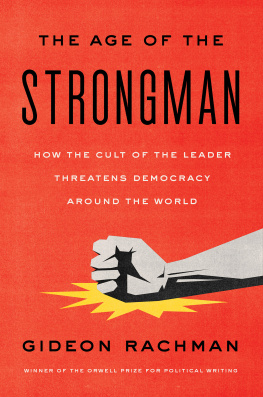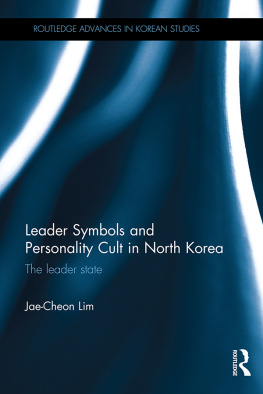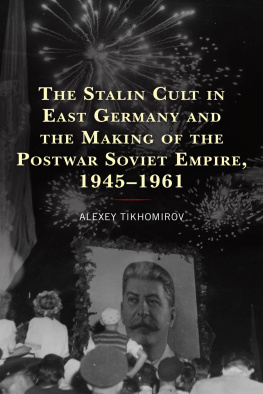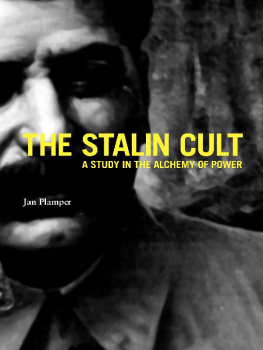
Nation-Building and Personality Cult in Turkmenistan
Turkmenistan is a country which is almost sealed off from the rest of the world but it has attracted foreign attention due to the eccentricities of its late president Saparmurat Niyazov Trkmenbay, whose ideological construction and dynamics of power have remained in place after his death.
This book offers a thorough analysis of why this personality cult developed in Turkmenistan in a way that has not been seen in other newly developed Central Asian countries. In assessing the Trkmenbay phenomenon, this book explains the causes and origins of the personality cult by drawing a comparison with Qadhdhafis Libya. The author understands the Niyazov cult not as a discrete phenomenon but as a system deriving from specific historical functions and functioning in a determined social and historical context. Using accounts of the Trkmenbay and Qadhdhai cults and the speeches and books written by these personalities, this book focuses on the institutional side of the personality cult.
A fascinating analysis of the political situation in Turkmenistan under Saparmurat Niyazov, this book will be of interest to scholars of Political Science, Comparative Politics and, in particular, Central Asian Studies.
Fabio De Leonardis received his PhD from University of Bari, Italy. He was previously a visiting scholar at the Center for Russian, East European and Eurasian Studies, Stanford University, USA, and is currently a teacher at Academy Union Education, Shenzhen, the Peoples Republic of China.
Routledge Advances in Central Asian Studies
For a full list of titles please see www.routledge.com/Routledge-Advances-in-Central-Asian-Studies/book-series/RACAS
Identity and Politics in Central Asia and the Caucasus
Edited by Murad Ismayilov and Mohammed Ayoob
Turkish-Azerbaijani Relations
One NationTwo States?
Edited by Murad Ismayilov and Norman A. Graham
US Policies in Central Asia
Democracy, Energy and the War on Terror
Ilya Levine
E-Government in Kazakhstan
A Case Study of Multidimensional Phenomena
Maxat Kassen
Uzbekistans Foreign Policy
The Struggle for Recognition and Self-Reliance under Karimov
Bernardo Teles Fazendeiro
Nation-Building and Personality Cult in Turkmenistan
The Trkmenbay Phenomenon
Fabio De Leonardis
Nation-Building and Personality Cult in Turkmenistan
The Trkmenbay Phenomenon
Fabio De Leonardis
First published 2018
by Routledge
2 Park Square, Milton Park, Abingdon, Oxon OX14 4RN
and by Routledge
711 Third Avenue, New York, NY 10017
Routledge is an imprint of the Taylor & Francis Group, an informa business
2018 Fabio De Leonardis
The right of Fabio De Leonardis to be identified as author of this work has been asserted by him in accordance with sections 77 and 78 of the Copyright, Designs and Patents Act 1988.
All rights reserved. No part of this book may be reprinted or reproduced or utilised in any form or by any electronic, mechanical, or other means, now known or hereafter invented, including photocopying and recording, or in any information storage or retrieval system, without permission in writing from the publishers.
Trademark notice: Product or corporate names may be trademarks or registered trademarks, and are used only for identiication and explanation without intent to infringe.
British Library Cataloguing-in-Publication Data
A catalogue record for this book is available from the British Library
Library of Congress Cataloging-in-Publication Data
Names: De Leonardis, Fabio, author.
Title: Nation-building and personality cult in Turkmenistan: the Trkmenbay phenomenon / Fabio De Leonardis.
Description: First published 2018. | Oxford; New York: Routledge, 2018. | Includes bibliographical references and index.
Identifiers: LCCN 2017034749 | ISBN 9781138576834 (hardback) |
ISBN 9781351268684 (ebook)
Subjects: LCSH: Turkmenistan-Politics and government1991-|
Trkmenbashy, Saparmyrat, 19402006. | PersonalityPolitical
aspectsTurkmenistan. | Nation-buildingTurkmenistan.
Classification: LCC DK938.8657.D45 2018 | DDC 355.02/809585dc23
LC record available at https://lccn.loc.gov/2017034749
ISBN: 978-1-138-57683-4 (hbk)
ISBN: 978-1-351-26868-4 (ebk)
Typeset in Times New Roman
by Sunrise Setting Ltd, Brixham, UK
Contents
This work was made possible thanks to the involvement and help of a variety of people (although I obviously bear all the responsibility for any mistakes and omissions). I am deeply grateful to Prof. Darya Pushkina, who was my Central Asia teacher and supervisor at the European University at St Petersburg and who read and offered useful criticism to the first draft of this work, and to Prof. Sergey Erofeev and Prof. Marina Mogilner, who were extremely supportive with their help and advice. I am also indebted to some Turkmen students at the Smolnyj Institute in St Petersburg who provided useful criticism to the first draft. The development of the first draft into the present text was rendered possible thanks to the granting of a Wayne Vucinich Fellowship by the Center for Russian, East European and Eurasian Studies at Stanford University in Spring 2014: I am particularly indebted to Professors Jovana Kneevi, Pavle Levi, Robert Crews and Alma Kunanbaeva, to my fellow visiting scholar Dr Philipp Casula and to Anh Nguyen, Marco Lavopa and Francesco Altamura for all the help and feedback. I would also like to thank Regione Puglia for its Ritorno al futuro grant, which gave me the chance to attend the IMARES programme at EUSP. I am also extremely grateful to Dorothea Schaefter, Lily Brown, Lynda Watson, Sharon Nickels and my anonymous reviewer at Routledge and to the whole staff of the Green Library at Stanford University, of the EUSP library and of the National Library of Russia in St Petersburg. Finally, I thank my parents, who have always supported and helped me, and Eka P. for her love and patience.
Niyazovs Turkmenistan: yet another mystery wrapped in an enigma?
Few countries in the world are so little known as Turkmenistan. Almost sealed-off from the rest of the world, cultivating self-exclusion even from most regional trans-national organizations (Bohr 2004: 4856, 488), Turkmenistan has attracted foreign attention mostly for the eccentricities of its late president Saparmurat Niyazov Trkmenbay (Leader of the Turkmen) and his hyperbolic personality cult, the most visible manifestation of an extremely repressive regime (Denber 2002; Saidazimova 2006; Denison 2009); however, a thorough analysis of why such a personality cult had developed and why it had done so in Turkmenistan and not (or not to the same extent) in the other newly-independent Central Asian countries is still lacking. The Trkmenbay phenomenon has been rather described than explained, as so often happens to personality cults (see Kurtov 2007: 7783; Plamper 2012: 1), while its causes and origins have been tendentially overlooked or simplified. Personality-centred approaches have suggested that the cult was just the outcome of the countrys backwardness coupled with state capture by a psychopathological personality (see Hiro 2009: 215), and consequently predicted that Turkmenistan would almost certainly face chaos when leadership change is forced upon it (Brown 2003: 217), an expectation that was widely disproved when, upon Niyazovs death in 2006, the Deputy Prime Minister and Minister of Health Gurbanguly Berdymukhammedov accomplished a smooth succession (Rousselot 2007). Even more to the point, despite some adjustments the Niyazov cult, though downsized, has not been abandoned after his death: most of his ideological construction and dynamics of power have remained in place (Saidazimova 2008), the only difference being that a relatively less flamboyant cult of personality has been developed around the figure of the new president (Peyrouse 2010: 7880); nor has the repressive attitude of the current regime towards its opponents changed (Mjedlova 2010a).


